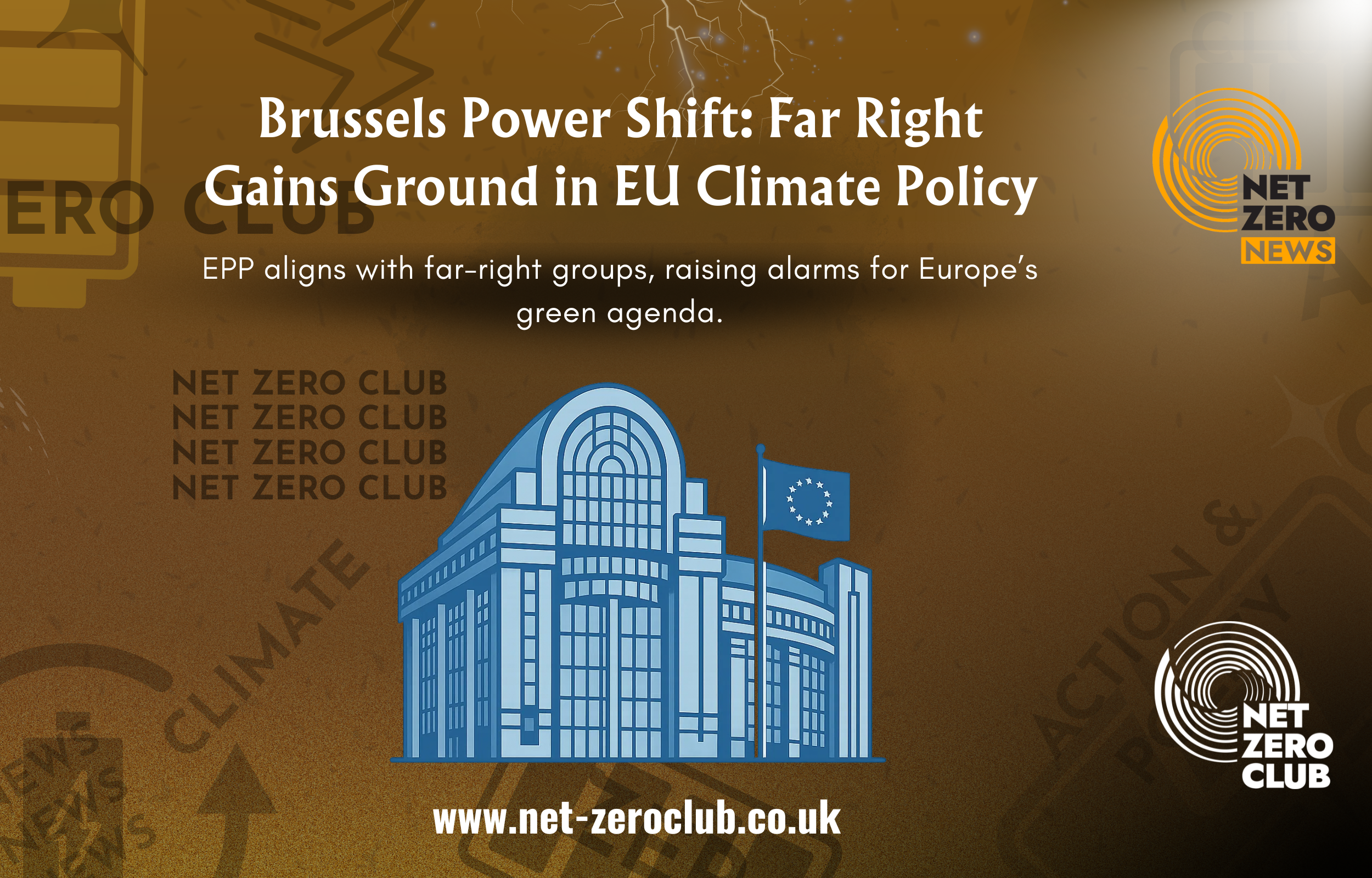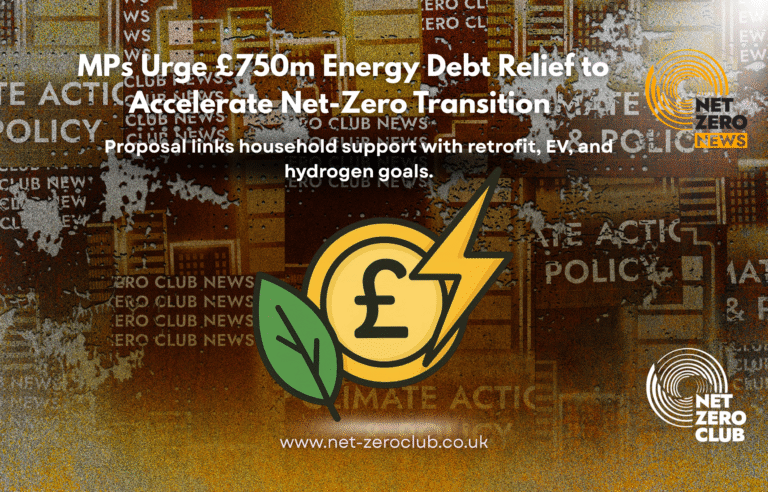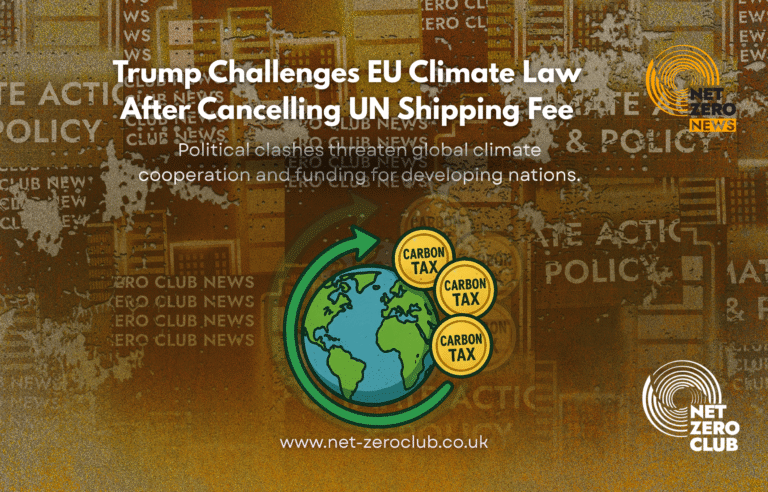Brussels: The Rising Influence of the Far Right

Hello, Champions of Net Zero!
In the heart of Brussels, a new chapter is unfolding in the European Parliament, one that has significant implications for sustainability and the future of green legislation across the continent. The recent political manoeuvring has sent shockwaves through the corridors of power, marking a pivotal moment in the ongoing struggle to combat climate change and uphold progressive environmental standards.
Since the far right’s surge during the EU elections, there has been a palpable sense of unease among mainstream political forces. The question on everyone’s lips has been: can the centre hold? However, in a groundbreaking vote, the centre-right European People’s Party (EPP) has effectively signalled that it cannot. By choosing to align with far-right groups, the EPP has taken a decisive step away from its traditional centrist allies, opting instead to support cuts to crucial green regulations. This decision has not only altered the dynamics of the Parliament but has also raised serious concerns about the future of environmental policies in Europe.
The move represents a significant break from decades of political protocol, effectively signing the death warrant of the so-called cordon sanitaire—the informal pact designed to keep far-right parties out of decision-making processes. This historic shift signifies a departure from principles in favour of political pragmatism, as the EPP now seeks to collaborate with whichever side of the aisle is most conducive to achieving its goals.
For the far right, this newfound legitimacy is a monumental achievement. The party’s representatives, such as Jordan Bardella from France’s National Rally, have embraced this moment as a consolidation of their power within the Parliament. Bardella stated post-vote, “The overall interest has won, but it is also the fruit of our ever-increasing presence … here concretely in the hemicycle.” Such sentiments underscore the far-right’s growing influence in European politics, a trend that is mirrored in national polls across several key member states.
However, this shift is not without its ramifications. For the liberal, centre-left, and Green parties, the implications are dire. The erosion of trust among these centrist groups threatens the cohesion necessary for collaborative governance. Green co-chair Terry Reintke expressed his dismay, declaring, “It’s a terrible sign for European majorities; it is a terrible sign for Europe, and it is terrible for the fight against climate change and child labour protection.”
The far right’s ascent in the Parliament is emblematic of broader political trends across Europe, where far-right parties now lead in national opinion polls in countries like France, the UK, and Germany. In Germany, where mainstream centrists have historically maintained a stronghold, the rise of far-right sentiments has sparked fears of a political landscape reminiscent of the country’s tumultuous 20th century history.
Professionalisation of the Far Right
Traditionally, far-right parties in Brussels have remained relatively dormant, utilising EU institutions primarily to enhance their visibility rather than actively participating in policymaking. However, the winds of change are now evident. Since the 2024 EU elections, these parties have undergone a professional transformation, becoming more adept at navigating parliamentary procedures to their advantage.
An anonymous EU official noted, “The far right is getting politically smarter and now knows how to play with the rules of procedure to their advantage.” This newfound strategic acumen has allowed them to influence the Parliament’s agenda significantly. For instance, they have successfully pushed for amendments that align closely with the EPP’s positions on various legislative proposals, thereby increasing their clout.
In the lead-up to this pivotal vote, the far-right groups began to assert their influence by shaping the internal Parliament agenda in collaboration with the EPP. They recognised early on that voting in favour of the EPP’s positions on key issues would secure them victories and bolster their presence in legislative discussions. Their success in recent months is evidenced by their impact on critical issues, including anti-deforestation measures and human rights resolutions.
A New Legislative Landscape
As the political landscape shifts, the dynamics of legislation passing through the Parliament are evolving. With the far-right now a significant player, the EPP finds itself in a position where it can choose its allies strategically. It can partner with the far right on certain issues, such as green regulations, while simultaneously leaning on its traditional centrist partners for more ambitious pro-European legislation, including the long-term EU budget.
For example, while the recent green omnibus legislation passed with far-right support, another crucial vote on 2040 climate targets was successfully passed with a centrist majority. This dual approach underscores the delicate balancing act the EPP must navigate in a Parliament where political allegiances are increasingly fluid.
Some EPP members view their collaboration with the far right as a form of retribution for the previous term, where left-wing and liberal groups held a majority and sidelined the EPP. This sentiment of revenge further complicates the already fraught relationships among coalition partners.
The EPP has defended its actions, asserting that it has consistently sought to work with pro-European political forces, maintaining that the firewall against extremism remains intact. Spokesperson Pedro López de Pablo emphasised, “Politics is not a game of denominations, tricks and posturing. We have been elected with a programme, and we need to deliver on what we have promised.”
Despite this rhetoric, the breach of trust among coalition partners raises critical questions about the stability of the current parliamentary majority. With no mechanism for snap elections, all parties find themselves in a tenuous alliance until the next EU-wide elections in 2029.
Challenges for Ursula von der Leyen
For Commission President Ursula von der Leyen, the EPP’s shift towards the far right poses significant challenges for her leadership. The increasing tendency for the EPP to collaborate with the right side of the aisle threatens to escalate tensions between the European Parliament and the Commission.
Von der Leyen has already faced several challenges to her leadership, including multiple motions of no confidence and threats to dismantle the EU’s budget. By endorsing far-right parties that are hostile to green initiatives—an essential aspect of her legacy—she risks alienating her left-leaning allies who are increasingly frustrated with the EPP’s behaviour.
“Any vote where the EPP aligns with the far right weakens Ursula von der Leyen’s position,” warned Reintke, reiterating that she should uphold the pro-European majority that elected her. The sentiment resonates deeply among her allies, who see the EPP’s actions as undermining the stability that is crucial for effective governance.
Renew’s Valérie Hayer cautioned von der Leyen that her party’s actions are destabilising her mandate, stating, “Your coalition stands for political stability, and political stability is the primary source of prosperity for all economies around the world. What your group has done today is undermine that stability.”
As the European Parliament embarks on this new era marked by the far right’s ascendance, the implications for sustainability and environmental policy are profound. The decisions made in this Parliament will shape the future of climate action in Europe, and the repercussions of this political realignment will be felt for years to come. With the stakes higher than ever, it is crucial for the champions of net zero to remain vigilant and proactive in advocating for a sustainable and inclusive future for all.
In conclusion, the recent developments in the European Parliament serve as a stark reminder of the fragility of political alliances and the ongoing battle for the future of Europe’s environmental agenda. As we navigate the complexities of this shifting landscape, let us continue to champion the cause of sustainability and hold our leaders accountable to the promises made for a greener tomorrow.

 Got net-zero news, project updates, or product launches to share?
Got net-zero news, project updates, or product launches to share? 




